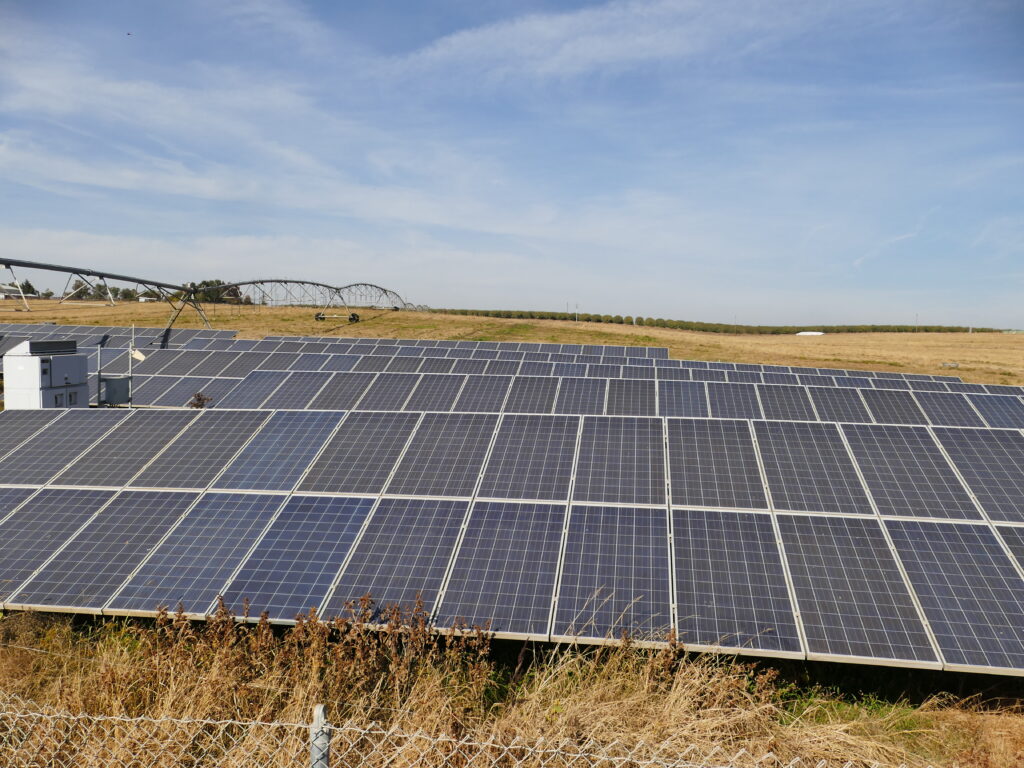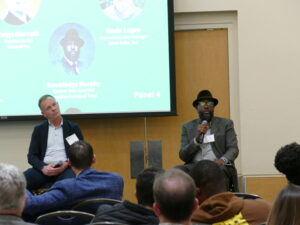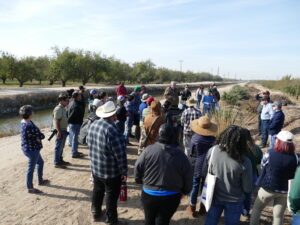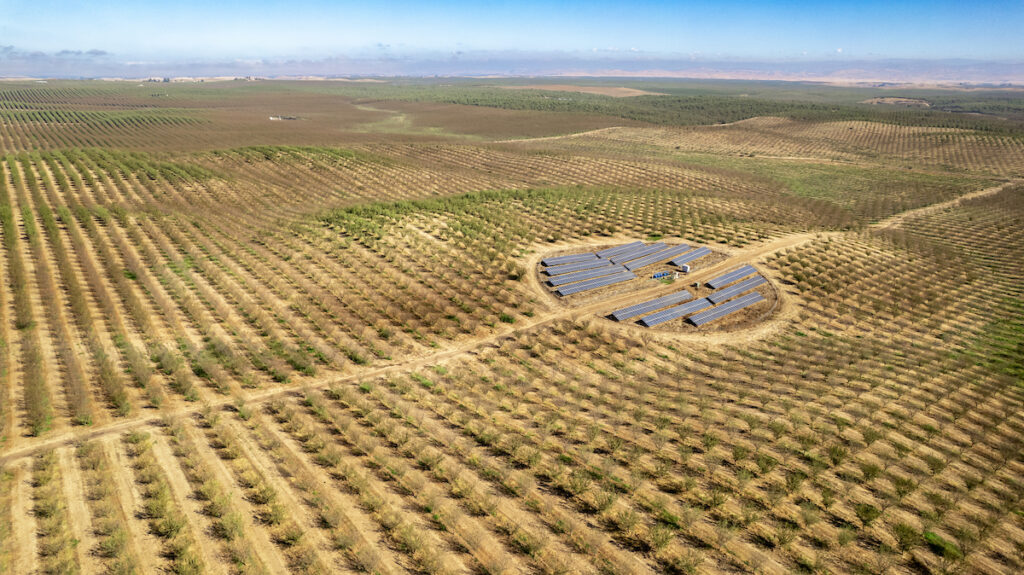Perspectives from the Field from AFT’s Western Solar Specialist

My name is Knowledge Murphy, and I am the Western Solar Specialist with American Farmland Trust. I have been traveling the West Coast attending solar energy related events for the last 3 months and wanted to share a little bit about two recent events, including what I learned in the process.
On Nov. 1, the first annual California Germany Agrivoltaics Conference was held at University of California-Davis. The conference was billed as “The first Transatlantic Agrivaltaics Conference, joined by high-level representatives from energy, agriculture, policy, and research to pave the future for agrivoltaics.” I attended, alongside several other AFT staff and board members.
The conference included discussions around solar policy in California, including the role the Golden State plays in the agricultural industry, both nationally and internationally. Examples of agrivoltaics projects were also provided, including the hurdles faced and solutions discovered.

As an advocate for farmers, ranchers, and landowners, AFT provided balance in discussions that were often filled more with the “voltaics” side and less about the agricultural people on the “agri” side of agrivoltaics. The experiences of farmers were also shared by audience members, who expressed their challenges with installing agrivoltaics on their land. Hopefully, the next conference will include more farmers in attendance. Either way, AFT plans to stay actively involved in supporting the work of the organizers, and the future of the annual CA Germany Agrivoltaics Conference.
The next day I attended the Latino Farmers Conference in Stockton, CA, which was happening at the same time as the agrivoltaics conference. On day two of the Latino Farmers Conference, two colleagues and I attended the farm tour. We drove an emissions-free rental car to meet up with the tour group.
The tour was led by Omar Rodriguez of the National Center for Appropriate Technology/Appropriate Technology Transfer for Rural Areas (NCAT/ATTRA). There were at least 40-50 people in attendance, and everything was in Spanish. Fortunately, my AFT colleagues speak fluent Spanish and were able to translate for me.
We toured two farms, and learned some challenges farmers were facing, including issues around water, cover crops, and how they were being approached by solar developers. One farmer said that a developer offered him the low figure of $3,200 per acre of his farm for a solar lease.

During and after the tour, several folks asked who I was. When I explained my position, I learned that these farmers didn’t know how solar and farming work together, nor did they know where to find this sort of information.
I realized that AFT could take a leadership role in educating Spanish-speaking farmers, ranchers and landowners about solar, solar leasing, agrivoltaics, etc. The length, width, and depth of AFT’s experience in agriculture, combined with the experience of the Smart Solar™ team, would create a strong ripple effect in these Brown communities, which have never been privy to this information. Stay tuned for more solar resources for Spanish-speaking farmers.
Both conferences were magnificent, yet unique in every way. I was truly honored to have the opportunity to attend both, advocate on behalf of farmers, share our Smart Solar℠ principles, promote the growth and expansion of agrivoltaics, and in general, be present to represent such a powerful organization in the farm viability movement.
There is much work to be done, however. Perhaps the solution lies in an African proverb that asks, “How do you eat an elephant?” The answer is,” One bite at a time.”

AFT is working at the helm of agriculture and solar working together, and it’s going to take one policy, one project, one webinar at a time, until perspectives on responsible solar panel deployment and agrivoltaics begin to shift nationally. Hopefully my voice, and the voices of my Smart Solar™ colleagues, through our national work, will help accelerate this shift.

